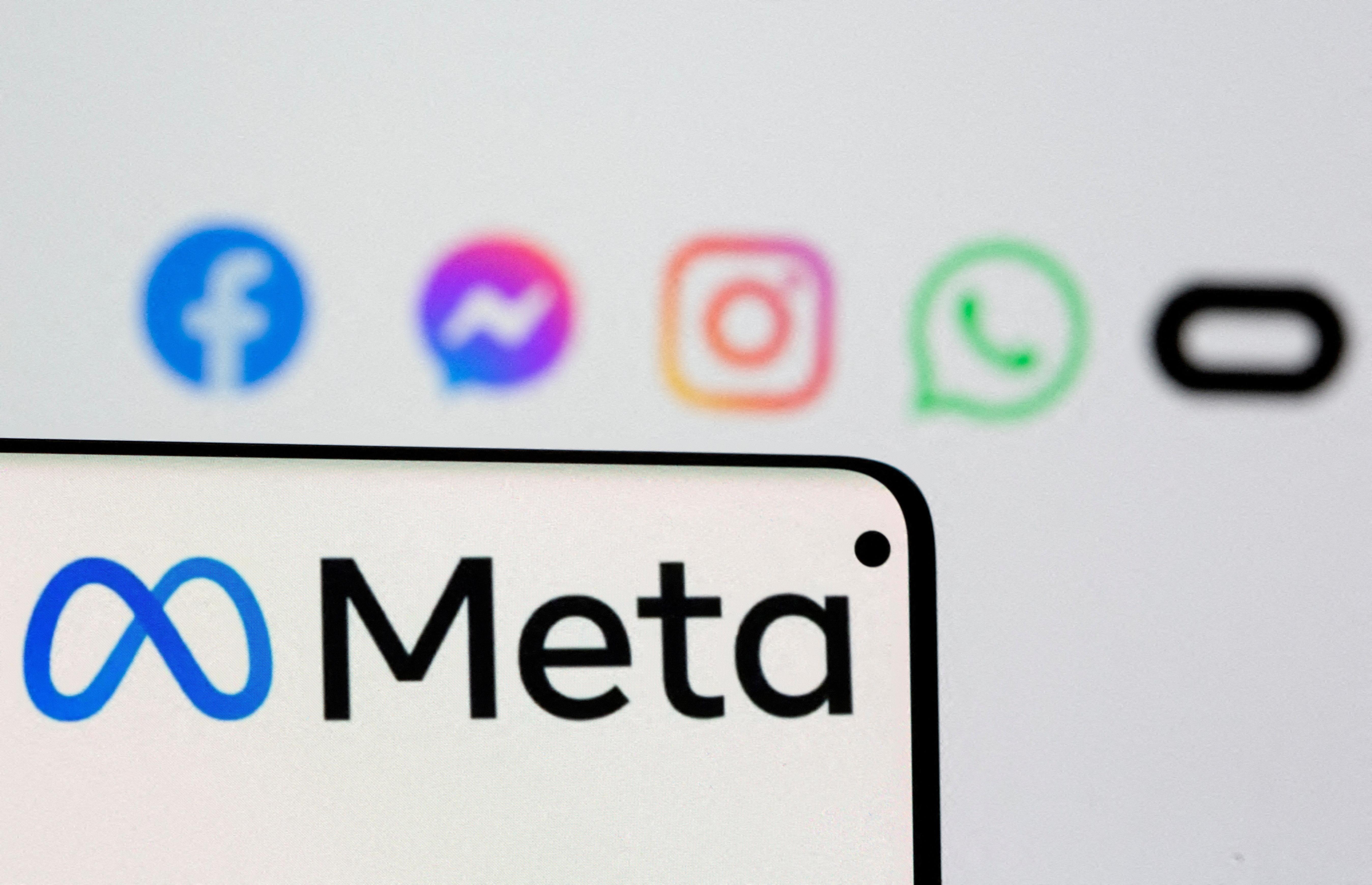In a digital world held upright by the pillars of transparency and trust, Meta – the tech juggernaut formerly known as Facebook – has raised eyebrows and stoked concerns by tweaking the gears of its sprawling machinery. Just when the collective gaze of global users was fixated on its operations, Meta responded by dimming the lights. The company has slayed a vestigial organ of transparency from its framework, a decision bound to ripple through our information landscape. But the timing? It’s as if the conductor silenced the orchestra mid-symphony. Join us as we delve into this unfolding drama involving Meta’s recent move to eliminate a crucial transparency device at a time when public scrutiny is its fiercest.
Table of Contents
- Meta’s Unexpected Elimination of a Key Transparency Tool
- Implications of Meta’s Abrupt Decision for User Information
- Analysis: How Meta’s Move Affects the Global Digital Landscape
- A Critical Time: Why Meta’s Decision Matters Now More Than Ever
- Moving Forward: Recommendations for Transparency in the Digital Sphere
- The Conclusion

Meta’s Unexpected Elimination of a Key Transparency Tool
In an alarming update, Meta, formerly known as Facebook has taken a surprise move towards discontinuing a major transparency tool. This is happening at a time when the company is already under severe scrutiny over its handling of misinformation, and indeed, its overall impact on societal discourse.
| Tool | Function | Impact of Elimination |
| CrowdTangle | Measurement of public post influence | Less transparency; harder to track misinformation |
As reports rise about the rapid spread of misinformation via social media, tools like CrowdTangle play a crucial role in keeping tabs on what’s circulating and how fast. Its sudden annihilation raises eyebrows over Meta’s intention, posing yet another speed bump in the ever-ongoing quest for tech transparency.
Implications of Meta’s Abrupt Decision for User Information
Who could have predicted that Meta’s recent decision to shut down its Graph Search would cause such disruption? This tool was vital for researchers and journalists as they could use it to access public Facebook data. The sudden mothballing, however, jeopardizes transparency significantly, as this source of information access is now denied.
With this surprising move, Meta planted yet another hurdle for those who vigilantly monitor harmful activities on the platform. Graph Search was indeed a valuable transparency lifeline assisting in uncovering opaque actions. The interruption poses roadblocks to the research community who are left scrambling for alternative means to access necessary data.
| Prior Scenario | Current Scenario |
|---|---|
| Easy access to public Facebook Data via Graph Search | Public data access curtailed. |
| Transparency in-platform activities | Increased obfuscation in activities |
This abrupt action from Meta echoes their previous decisions perceived as anti-transparency. It amplifies apprehensions around Meta’s commitment to providing a safe online environment. Let’s not forget the critical role the tool played in past investigations, be it social issues or political ad transparency. In such a critical time, when digital misinformation is at its peak, the removal of such a tool seems counter-productive at best.
On a broader scale, this move undermines trust and confidence in the platform. It further widens the gap between the promise of transparency and the actions taken by Meta. This decision solidifies concerns about the platform’s prioritization of its interests over public transparency. Without a reliably open approach to user information, Meta risks appearing as an opaque entity, thereby further fostering an environment of mistrust amongst its users.

Analysis: How Meta’s Move Affects the Global Digital Landscape
The digital landscape has been significantly reshaped by Meta’s recent decision to dismantle a key transparency tool, Access Your Information (AYI). Launched in 2018, AYI allowed users to see what personal data Facebook had collected about them. Yet, at a time when users are craving more transparency and control over their data, Meta decided to retire this tool, replacing it with two less comprehensive features: “Activity Log” and “Download Your Information”.
This decision has triggered a wave of concerns among users, transparency advocates, and digital rights activists globally, who see this as a step backwards in the fight for online transparency. Besides, the move comes when Meta-owned platforms like Facebook, Instagram, and WhatsApp, are under increased scrutiny for their privacy practices.
- The Activity Log only allows users to view their interactions on the platform but does not provide the same breadth of data that AYI did.
- The Download Your Information feature does include more data but it is more time-consuming for users to access the relevant information.
| Old Feature | New Features |
|---|---|
| Access Your Information | Activity Log and Download Your Information |
| Full range of personal data | Splitting features reduces accessibility |
As we await Meta’s next moves, it’s clear that this decision will have profound implications for the global digital landscape. The era of Big Tech companies hoarding data without dropping a hint to the end-users might just be peeking over the horizon entrapping netizens in a complex labyrinth of digital control.

A Critical Time: Why Meta’s Decision Matters Now More Than Ever
It’s no secret in the digital world that transparency is an ever-declining attribute. Not many corporations value the accessibility and clarity their consumers demand. Recently, Meta, the parent company of Facebook, took a definitive step back when it discreetly shut down a pioneering transparency feature at a crucial time, when the world is plagued with issues of misinformation.
The Transparency Tool
The tool, infamously known as the Ad Library, presented a consolidated display of advertisements that were being shown across Facebook and Instagram. Anyone could search for ads pertaining to politics, issues of national importance, and even those ‘dark ads’ targeted towards specific demographics. To lose such a tool at a time when digital transparency is of utmost importance raises significant question marks over Meta’s move.
Impact on Digital Space
- Elimination of a third-party ad tracking mechanism.
- Reduced transparency, which can invite misinformation campaigns.
- Increased difficulty for journalists, researchers, and civil societies to hold corporations and political campaigns accountable.
The decision to shut down the Ad Library marks a stark regression in the quest for online transparency. The move plays into the narrative of tech corporations maintaining a stronghold over their platform and the content that circulates on them.
Table: Key Concerns with Meta’s Decision
| Concern | Potential Consequence |
|---|---|
| Less transparency | Potential for misinformation to spread with little barrier |
| No third-party accountability tools | Unregulated political campaign ads and issue resolutions |
In an era where digital privacy and transparency are already under severe threats, the move by Meta to disable a key tool that promotes transparency adds fuel to the fire. The timing of this decision further cements the concern over tech companies’ disregard for public insight and control over their own data.

Moving Forward: Recommendations for Transparency in the Digital Sphere
In another questionable move, Meta (formerly Facebook), has pulled the plug on its widely-used Ad Library API. Widely relied upon for shedding light on advertising practices across its platforms, it has abruptly been closed to researchers. This move comes at a particularly troubling time when resounding calls for transparency and accountability over digital platforms are arguably at their peak.
This bold decision spells serious implications for policymakers, journalists, academics, and civil society who rely on this tool for valuable insights. For example:
- The operations of political advertisements: Helping to expose the true extent of misinformation spread via ads.
- Tracking the spending: An important metric in understanding campaign strategies.
- Caught in between policy worlds: How multinational advertisers navigate different policies surviving in various regions.
| Key Affected Areas | Impact |
|---|---|
| Investigative journalism | Reduces the ability to track and provide scrutiny over advertising practices |
| Academia | Impedes research into digital advertising trends and behaviors |
| Civil society | Limits the ability to hold digital platforms accountable for misinformation |
| Policymakers | Restricts access to critical data informing regulation measures |
On the back of its rebrand, Meta might have hoped to symbolise a fresh start and a renewed commitment towards creating a trustworthy digital sphere. Unfortunately, shutting down such a vital tool for transparency sends a starkly contrasting message. It’s a major backpedal on their statement of intent to construct a more accountable and open internet.
Yet hope persists. With collective pressure for transparency growing, other platforms may instead step up to fill this void. It also presents an opportunity for regulators to amp up pressure on Alphabet, Snap, Twitter and alike to be more transparent about their advertising. Ultimately, the hope is Meta’s decision becomes an outlier, not the norm. For a free and democratic digital sphere, transparency is not a mere ‘nice-to-have’, it’s an absolute necessity.
The Conclusion
In conclusion, the decision by Meta to disable the transparency tool comes at a critical moment when trust in social media platforms is already fragile. The impact of this move on the digital landscape remains to be seen, but one thing is certain: the need for accountability and transparency in online spaces has never been greater. As we navigate this evolving digital world, it is imperative that we continue to advocate for openness and honesty from the platforms we engage with. Only then can we truly build a safe and trustworthy online community for all.






